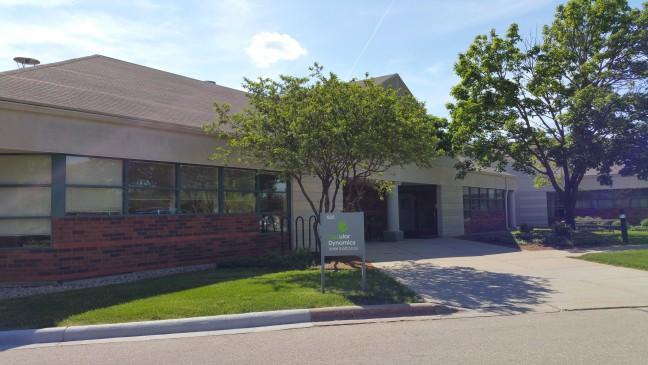The road to advancement in stem cell research may still be winding and largely unexplored, but Madison-based Cellular Dynamics International is paving it one cell at a time.
CDI is a firm that combines traditional academic research with industrialized manufacturing processes. It specializes in the research, development and subsequent mass-production of “induced pluripotent stem cells,” or IPSCs, Chris Parker, executive vice president and chief business officer at CDI, said.
The firm’s prowess in stem cell research made it a highly sought-after investment opportunity for the Japanese Fujifilm Holdings Corporation, which ultimately acquired the firm fully in March 2015, Parker said.
Parker said when Fujifilm acquired the Madison-based firm, the multinational corporation’s executives made the decision to keep CDI in Madison due to the talent and academic research opportunities the city provides.
“There’s a rich recruitment ability and a nexus of academic research and highly trained scientists that CDI can pull from in Madison, and many of the scientists here in CDI came out of University of Wisconsin,” Parker said. “The CEO of Fujifim indicated that the people and the community of Madison are a very strong draw for Fujifilm to continue to maintain CDI in Madison.”
CDI and UW also have a rich history together, as the firm was founded in 2004 by several UW professors.
Chief among these UW professors was James Thomson, a stem-cell trailblazer famous for discovering human embryonic stem cells in the 1990s. Thomson’s discovery resulted in widespread political and ethical uproar, and even earned him a spot on the cover of TIME Magazine, Parker said.
Parker said the firm started out working with conventional stem cells, but devised methods for mass-producing IPSCs from human blood samples after IPSC technology was discovered simultaneously in 2006 by two different researchers: Japanese scientist Shinya Yamanaka and Thomson.
IPSC technology allows CDI to grow a human patient’s own cells in a petri dish, thereby eliminating both the possibility of rejection and the ethical concerns surrounding embryonic stem cells that have previously held back research.
CDI has been able to use IPSC technology to produce a variety of different human cell-types and other products, Parker said.
“Today, we have 12 products representing a variety of different cell types including cells from the neuronal system, cardiovascular system, skeletal muscle, and a variety of different progenitor cells,” Parker said. “In addition, we have a variety of kits and associated components that customers buy on a routine basis for not only drug toxicity testing, but also drug discovery and finding new medicines.”
In addition, now that the quality and consistency of CDI’s products are well-established in the scientific community, Parker said academic researchers are beginning to experiment with using CDI’s cells in the field of cell therapy.
Cell therapy is a budding field within regenerative medicine in which newly-grown cells are implanted in place of damaged cells and essentially regrow damaged tissue, George Church, a Harvard Medical School professor who serves on CDI’s scientific advisory board, said.
“In its broadest sense, if you have some tissue that’s damaged that can be repaired at the tissue level where you don’t have to do a complete organ transplant, you can introduce stem cells or partially differentiated cells,” Church said. “They will repopulate and restore the functionality that’s missing.”
With exciting research prospects on the horizon, Parker expressed enthusiasm over CDI continuing to perform cutting-edge research in Madison.
It is important to remember the astonishing scientific advances made by CDI are the products of great Madison minds, Parker said.
“When the CEO of Fujifilm visited CDI last October, the message that he passed on to the employees was that although CDI has great technology and great innovation, the reason why CDI is successful — and the reason why it will remain in Madison — is because of the people,” Parker said.


